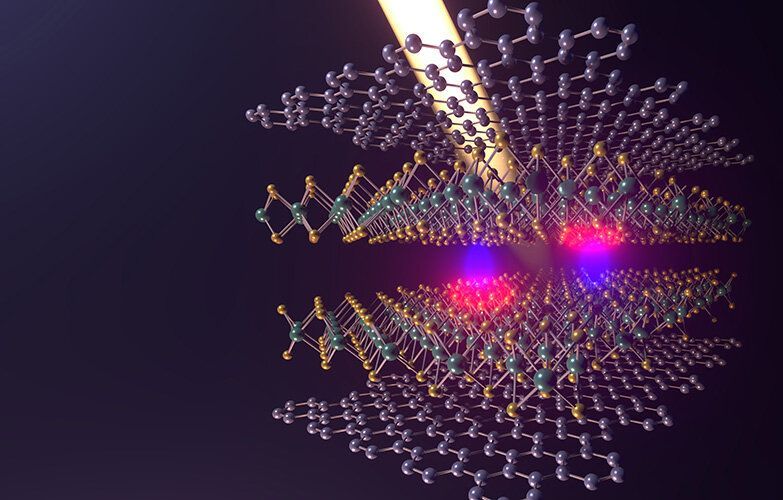Novel two-dimensional materials are currently a hot research topic around the world. Of special interest are van der Waals heterostructures, which are made up of individual layers of different materials held together by van der Waals forces. The interactions between the different layers can give the resulting material entirely new properties.
Double layer unlocks crucial properties
There are already van der Waals heterostructures that absorb up to 100 percent of light. Single-layers of molybdenum disulfide offer absorption capacities in this range. When light is absorbed, an electron vacates its original position in the valence band, leaving behind a positively charged hole. The electron moves to a higher energy level, known as the conduction band, where it can move freely.
